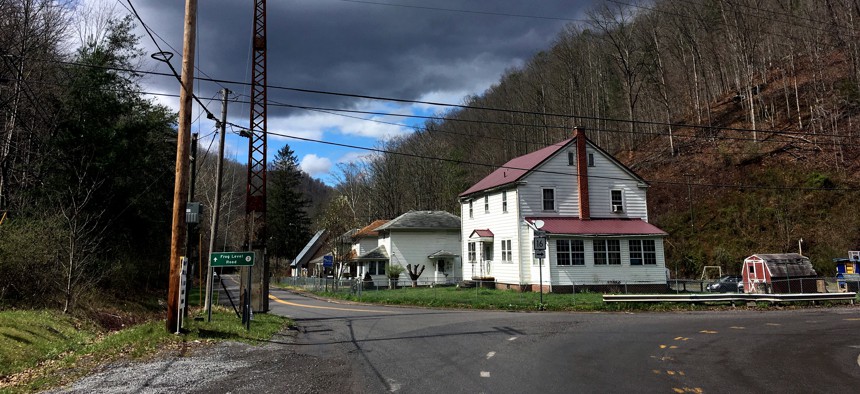Connecting state and local government leaders
The McDowell County Public Service District has worked for 27 years to improve and maintain infrastructure that provides drinking water to people in remote corners of the state.
COALWOOD, W.Va. — The tap water here is fine these days, according to Jenny Beavers.
“It’s heaven now,” Beavers, in her 80s, said during a recent interview at her home.
But this was not always so.
The water turned bad about three decades ago, during an era when local mines were closing. “It would come and go,” Beavers recalled. “You’d go two or three days with clear water, maybe low pressure. And then all of a sudden it would be running out almost thick as mud.”
To get drinking water, Beavers and her late husband would fill milk jugs at a nearby spring.
“We had a little blue pickup truck and he’d take the two grandsons and they’d fill up the jugs,” she said. “We really carried water for five to seven years, I guess.” Some residents, Beavers explained, ran pipes from mountain streams to their homes.
“You take a bunch of hill people," she said, "they can manage.”
‘Shadow of What It Used to Be’
Coalwood is tucked between steep mountainsides in southern West Virginia. A small, unincorporated community it is located in McDowell County. The town was first developed around 1905 to support Virginia-Pocahontas Coal Co., which would become Carter Coal and Coke Co.
The deserted mine company buildings along Frog Level Road and the drained community pool, surrounded by overgrown grass, serve as reminders of when the local economy hummed along. Over decades, miners here excavated millions of tons of coal for companies like Carter, and later Olga Coal Co. The Olga mine, then owned by LTV Steel Corp., finally shut down in 1986.
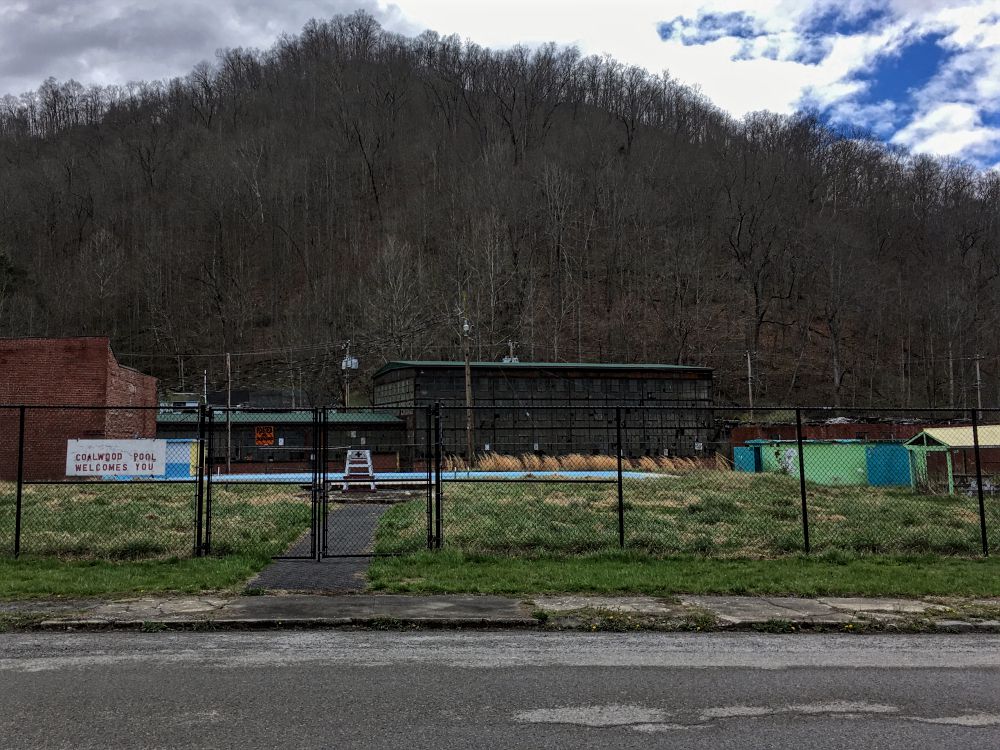
The 1999 film “October Sky,” drew some attention to Coalwood. It was based on the memoir “Rocket Boys,” by Homer Hickam, Jr. who wrote about his exploits with amateur rocketry as a teenager in the town during the late 1950s.
Describing the town in 1959 in his book “The Coalwood Way,” Hickam writes of bustling company stores, coal dust drifting into homes and how men “walked with a trudging grace to and from the vast, deep mine.” But the town, he noted, “was just beginning to fade away.”
Nowadays, Beavers said that Coalwood is “a shadow of what it used to be.”
Company Town Infrastructure
Like much else in this part of West Virginia, the water infrastructure is tangled with the legacy of coal.
Mine operators built plumbing and sewer systems during the first half of the 1900s to serve “company towns,” like Coalwood, where mineworkers and their families lived. Many of these communities were constructed from scratch in and around the v-shaped hollows, known colloquially as “hollers,” which split the wooded mountains that blanket this region’s landscape.
As the mining industry here weakened, coal company water systems changed hands.
By 1971, a private utility known as McDowell County Water Co. controlled water service in Coalwood and 13 other communities, according to a document submitted on behalf of the McDowell County Commission to the West Virginia Infrastructure and Jobs Development Council in the mid-nineties. The report notes that these water systems were already nearing the end of their usable lifespans and that the company allowed them to deteriorate further.
David Foster inspected water systems for about 40 years for the state of West Virginia and now works with the West Virginia Rural Water Association. His opinion, he said, is that the private operators who took over systems from the coal companies often neglected upkeep.
“These people ran them not putting the revenue back into maintenance,” Foster said.
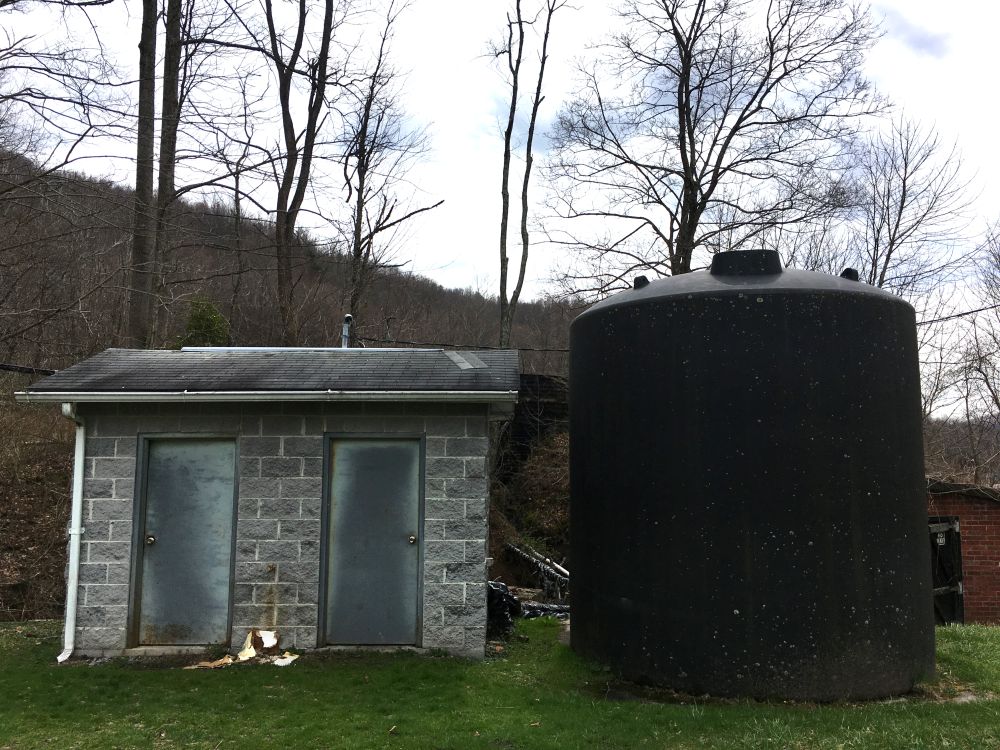
In November 1989, McDowell County Water Co. filed for Chapter 11 bankruptcy protection.
About four months later, the County Commission adopted an order creating the McDowell County Public Service District, a public utility that would take over the failed water company’s assets, which at that time included 11 water systems.
‘We’ve Been Pretty Aggressive’
The water quality finally improved in Coalwood after the public service district installed a new treatment facility and well, upgrades that began in the early nineties, according to Mavis Brewster, who has been with the district 15 years and is its general manager.
Coalwood is just one example of a place where the public service district has upgraded waterworks in McDowell County during the last 27 years. Since its inception, the district’s customer base has grown to about 3,300 from around 500. It now operates 16 water systems.
“We’ve been pretty aggressive in the county about trying to provide water to as many residents as we possibly can,” Brewster said.
At a time when there are discussions in the nation’s capital about the possibility of a $1 trillion infrastructure package, the McDowell County Public Service District offers a snapshot of what it takes to build and maintain water infrastructure in remote corners of America.
Brewster noted that the systems the district inherited were often in very poor condition. “That’s when we get them,” she said, “when it’s totally beyond using, they’re out of water, they have long outages, three or four days or weeks at a time.”
Challenges Persist
The district has made substantial progress upgrading these systems.
But difficulties remain.
There are still pockets of the county that do not have access to public water, or that have poor quality water, according to Brewster.
Outdated sewage systems are still common, she said, with some of them “straight-piping” wastewater into creeks. Up until now the district has not taken on any sewer projects, but it’s in the process of pulling together money to do its first—in Coalwood.
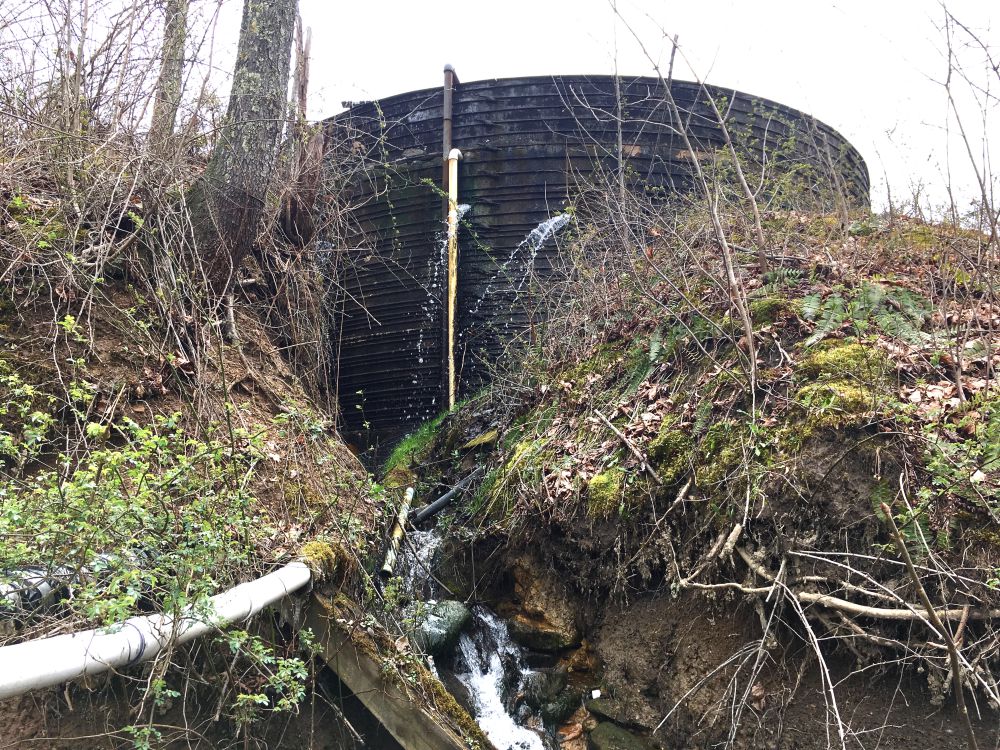
Financial challenges exist as well. As the district has made upgrades, borrowing has stacked up, much of it in the form of loans with interest rates ranging from 2.25 to 5 percent, offered by the U.S. Department of Agriculture’s Rural Development division.
The district’s most recent annual report shows that in June 2015 it had $7.4 million of long-term debt, roughly quadrupling from its 1999 level of $1.7 million. Operating revenues during the district’s 2015 and 1999 fiscal years were around $1.8 million and $612,000 respectively.
“We have a tremendous amount of loan debt,” Brewster said, adding that monthly payments total about $32,000.
She didn’t seem panicked about the district’s debt load. But she did point out that the local population has fallen, reducing the pool of potential ratepayers. In Coalwood, she noted, the number of customers has gone down over the last 15 years from near 200 to around 160.
“You still have that same loan payment every month,” Brewster said. “That does concern me a little bit.”
What the district’s seen in Coalwood tracks with countywide population trends. U.S. Census Bureau estimates show all of McDowell County had 35,233 residents in 1990, the year the public service district formed. By 2016 the figure had fallen by roughly 45 percent to 19,141.
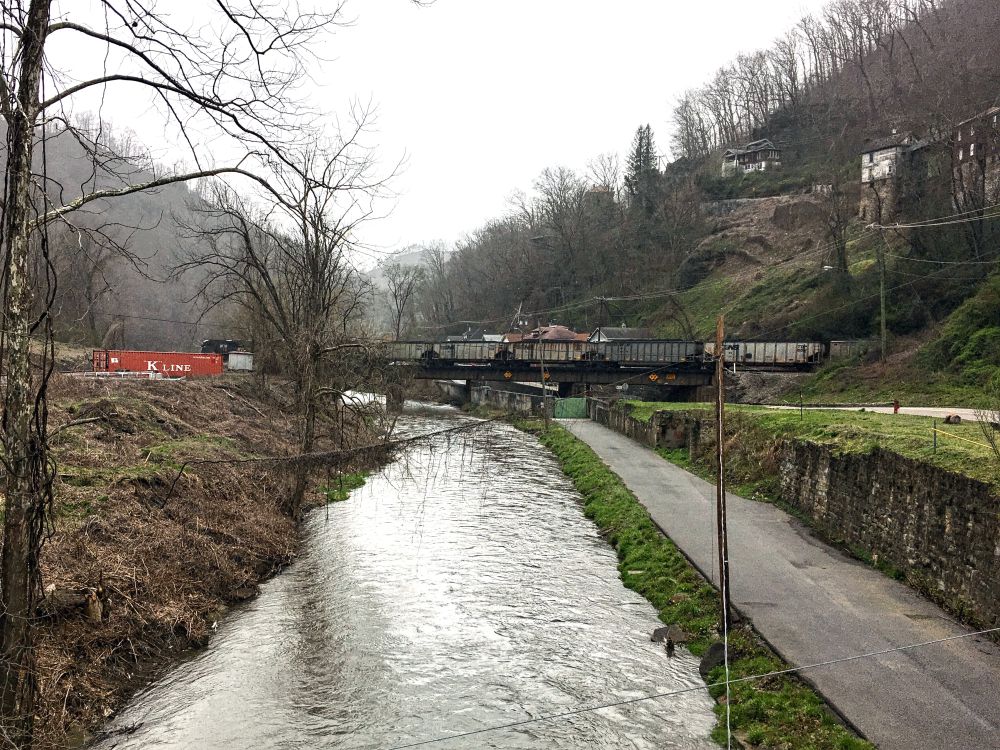
Raising rates to make up for population loss is tough in a place where about 34 percent of people lived in poverty during 2015, according to Census Bureau figures, and where the unemployment rate was about 10 percent in February—roughly double the national level.
The district charges $26.84 per month for up to 2,000 gallons of water. Beavers, the Coalwood resident, said this about what she pays.
Operations and maintenance alone for the 16 water systems the district oversees amounts to a tall order.
Unlike a utility with a single network for all of its customers, these individual systems, spread across the county, create additional burdens with reporting and water sampling. “That makes a huge difference in the paperwork and in the regulations,” Brewster said.
Just performing daily systems checks requires workers to drive about 300 miles, Brewster estimated. “We’re putting so many miles on vehicles every day,” she said, “we just wear them out.”
‘We Just Take Care of Our Own Leaks’
Ashland, about 26 miles east of Coalwood, is an example of a former coal mining community in McDowell County where the public service district does not control the water system. George Oster has lived there since 1944, and says the town has a population of about 40 to 50.
He explained by phone recently how local residents maintain the water system on their own, but expect that the public service district will soon take it over—a positive development in his view.
Ashland Coal and Coke once mined coal here. Oster worked at the local mine for 23 years before it closed around 1979. Up until that time, the mining company took care of water service. When the mine shut down and this arrangement ended, the residents began to manage what’s known as Ashland Community Water, a nonprofit utility.
Oster said he’s been involved with Ashland Community Water since it began and is now the treasurer.
There are currently 26 water customers in town, with each paying $15 a month. It’s a flat fee, there are no meters. Water comes from the abandoned No. 3 mine, a reference to its level in the ground. It’s chlorinated and flows into a storage tank.
The system is all gravity fed. “No pumps whatsoever to fool with,” Oster noted.
Oster is certified to take water samples and does so regularly to comply with regulations. These samples are sent to a lab for testing, with the results forwarded to the state.
If something breaks, Oster said, “one fella’s my maintenance man.” Someone in Crumpler, a community up the road, has a backhoe that can be used to dig up deep water lines. “We just take care of our own leaks and everything,” he said. In the last year or so, he said, there has only been one leak that needed to be repaired.
This summer, Oster is planning to move to North Carolina. He wasn’t sure about the exact timeline of when McDowell County Public Service District could take over the water system. But if and when that happens, he said, Ashland Community Water will dissolve.
Asked if he thought the district stepping in would be a good thing, Oster replied: “I do, I really do.”
“We just have very few people here,” he said, noting that a neighbor was considering putting their home up for sale. “Eventually, there’s not going to be hardly anybody here to do anything.”
Trump’s Budget Proposal
It’s still unclear what any eventual White House infrastructure plan could mean for McDowell County, where Trump won nearly 75 percent of the vote in last year’s presidential election.
But a budget proposal the president sent to Congress last month would eliminate funding for the Appalachian Regional Commission, the U.S. Department of Housing and Urban Development’s Community Development Block Grant program and $498 million for a water and wastewater loan and grant program within the U.S. Department of Agriculture's Rural Development division.
These are agencies and programs that the public service district has depended on up until now for grants and financing. “USDA Rural Development has been a player in every project that we’ve done,” Brewster noted. “That’s probably the one that for us is used the most.”
Trump has said he wants an infrastructure plan that relies on a mix of public and private capital.
Asked if she saw opportunities for private companies to invest in McDowell County’s water systems, Brewster was skeptical, pointing to the low population density and the sprawling area the district serves. “If you were actually trying to make some money,” she said, “you wouldn’t want to come to McDowell County and try to do water.”
‘People Are Still Connected’
Brewster said that the district had recently obtained a $1.3 million small cities block grant for the pending Coalwood sewer project. These grants are distributed by the state under the Community Development Block Grant Program, which the Trump administration’s budget blueprint says is not well-targeted to the nation’s poorest residents and has not demonstrated results.
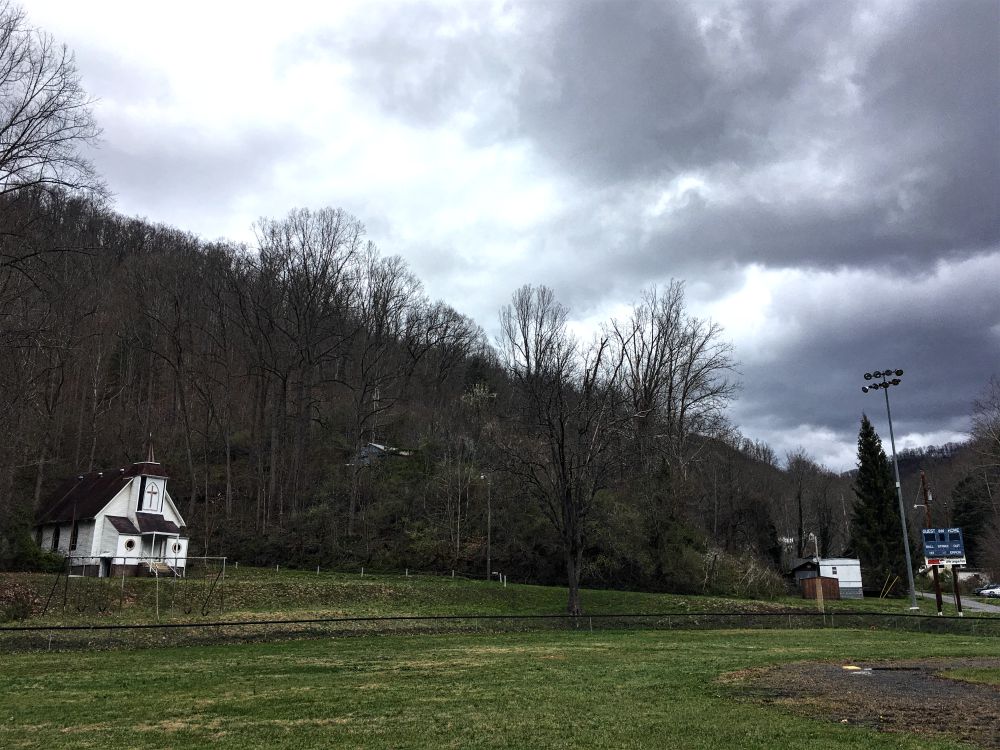
McDowell County Public Service District would need another $450,000 to fully fund the first phase of the project, according to Brewster.
The ailing sewer system in Coalwood is not unique. It’s considered “orphaned” and, like others around the county, remains in service even though it’s not officially overseen by anyone.
“They were put in by the coal companies. Well, the coal companies are now gone. And the sewer systems are still in place,” Brewster said. “People are still connected.” She explained that some of this infrastructure—which gets used when people flush toilets, do dishes, or wash laundry—consists of “basically a collection system that’s running out into the creek.”
Beavers, who has lived in her Coalwood home since 1969, said it was her understanding that very few houses in the town have enough property to put in a septic tank.
“I would have done that years ago,” she said.
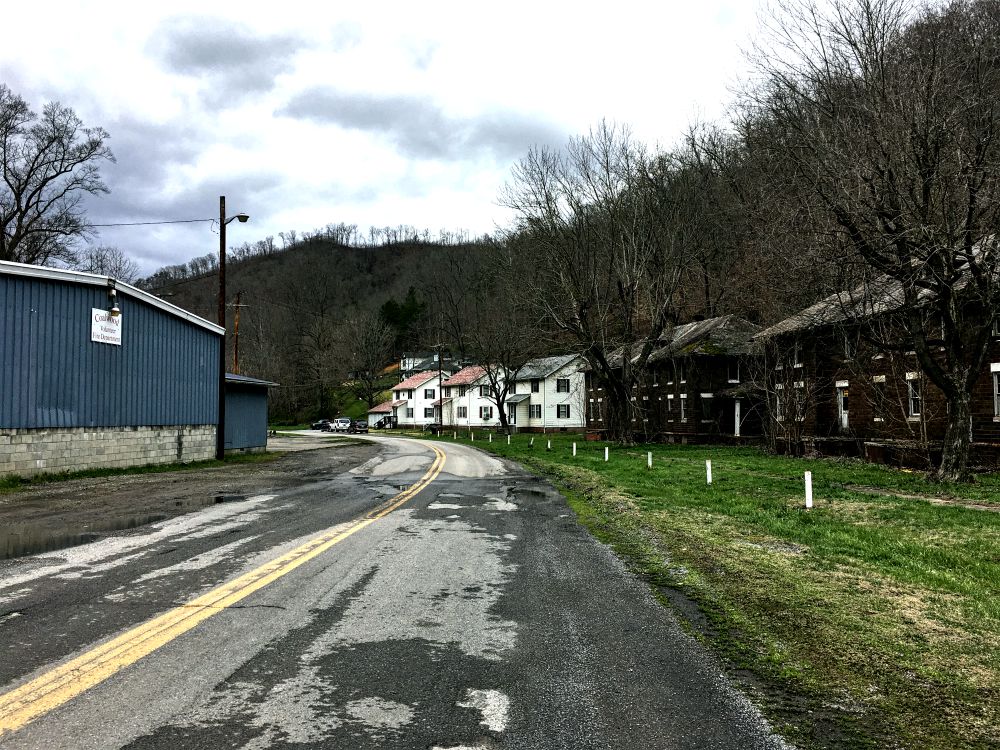
The longstanding problems with the local sewer system bother her.
“Because, you know, when I’m doing dishes and the dish detergent goes in, everything from when I run the washer, all that goes right into the creek. So you’re getting detergents and sewage and chemicals,” she said.
Beavers said there used to be crawdads in the creek behind her house, and ducks could be spotted in the various creek branches that run through Coalwood, but that’s not the case anymore.
“Animals are not stupid,” she said.
“There’s not enough people here to make an impact,” Beavers added, as she discussed the sewer system. “If this were near some big city, they’d take care of it right away.”
Bill Lucia is a Senior Reporter for Government Executive’s Route Fifty and is based in Washington, D.C.

NEXT STORY: Cisco offers cloud-based communications for agencies
